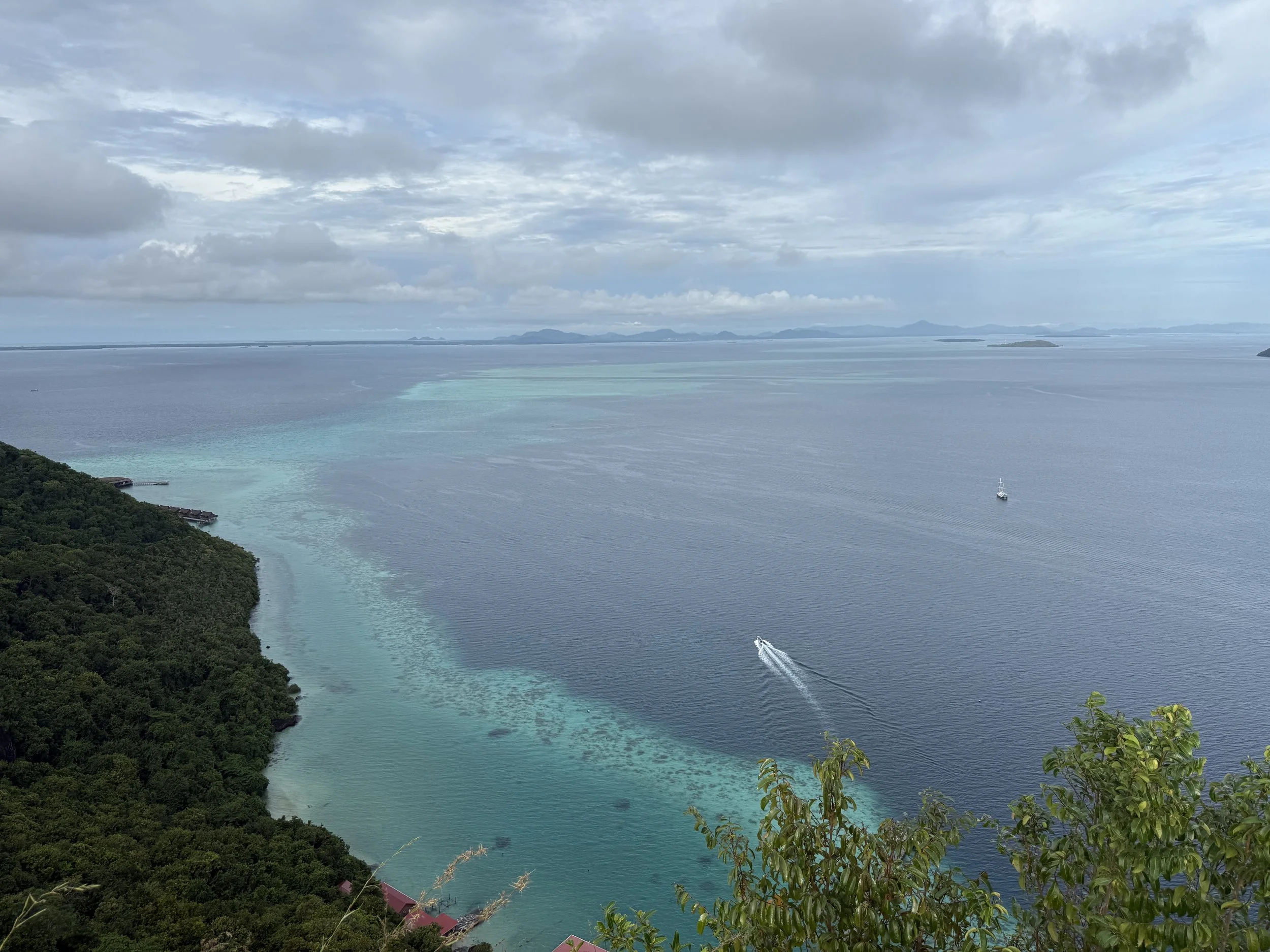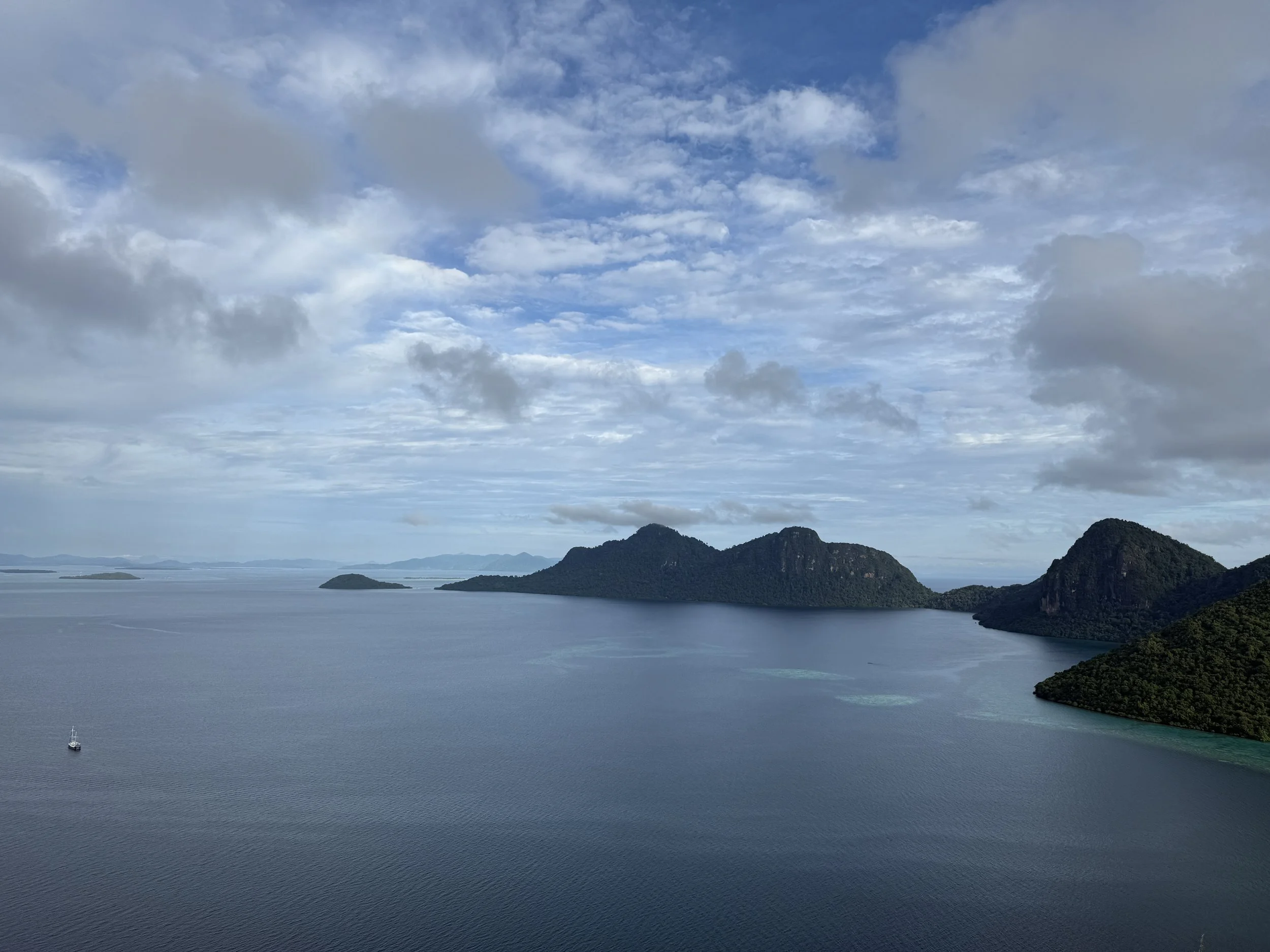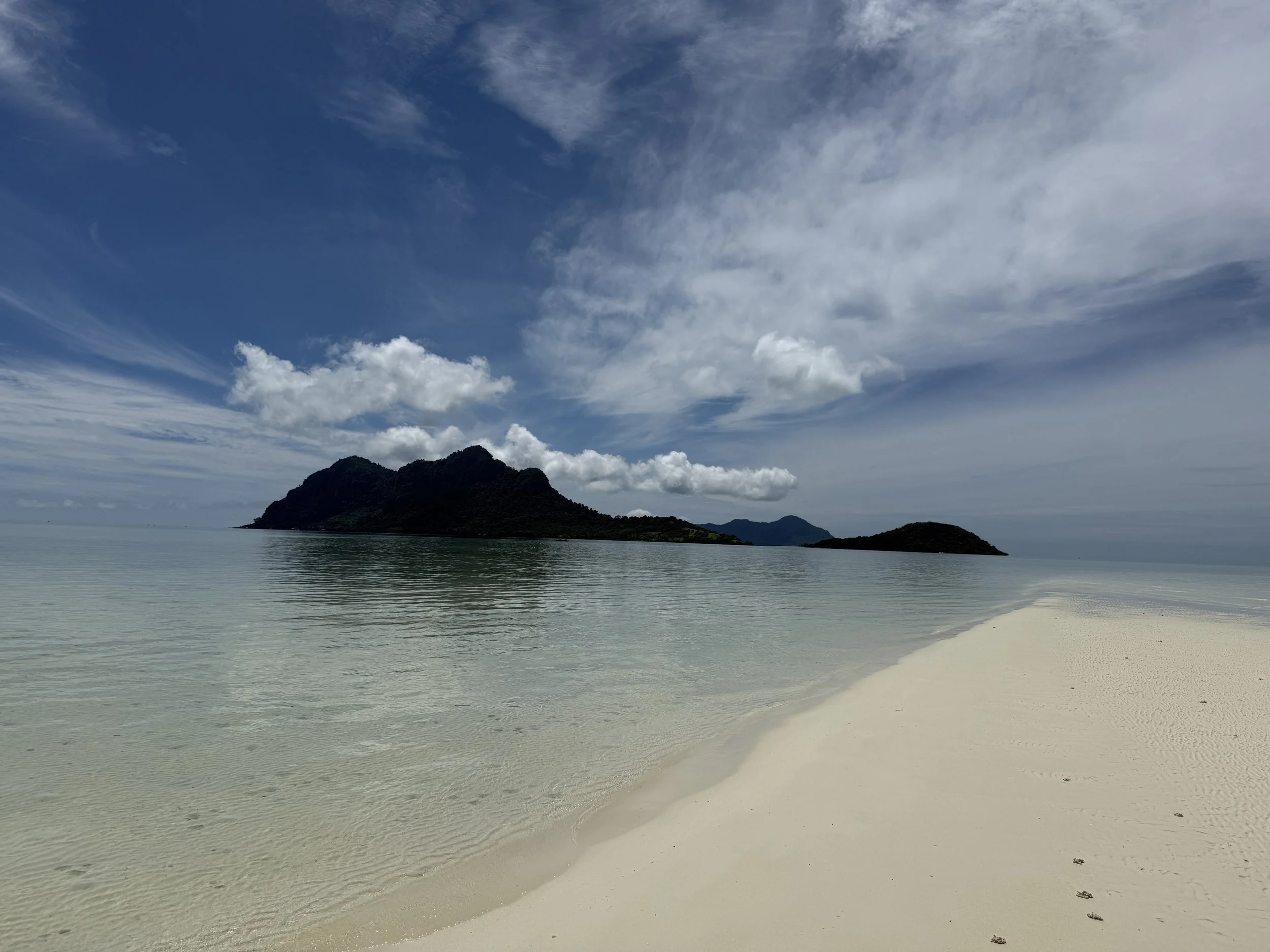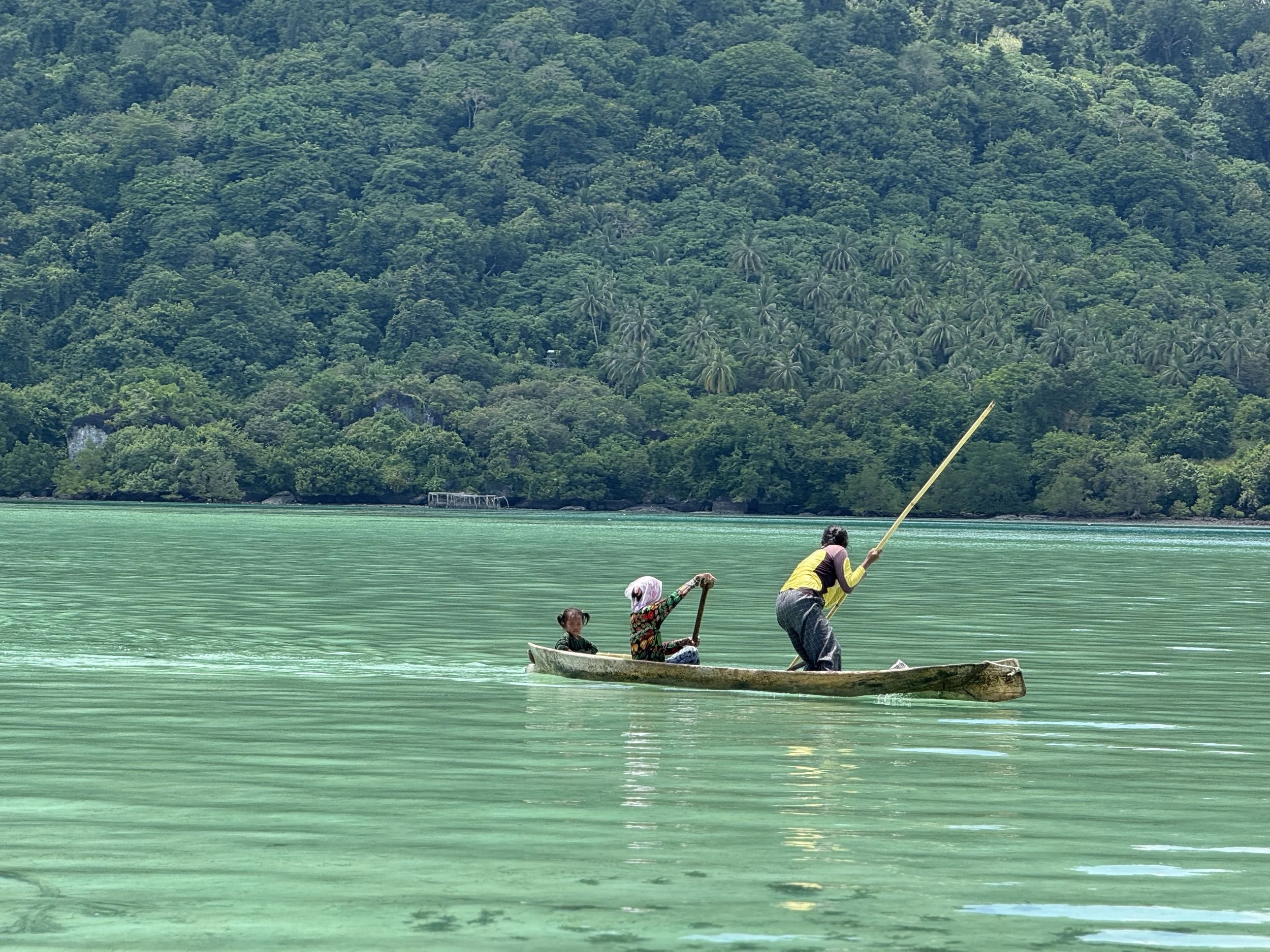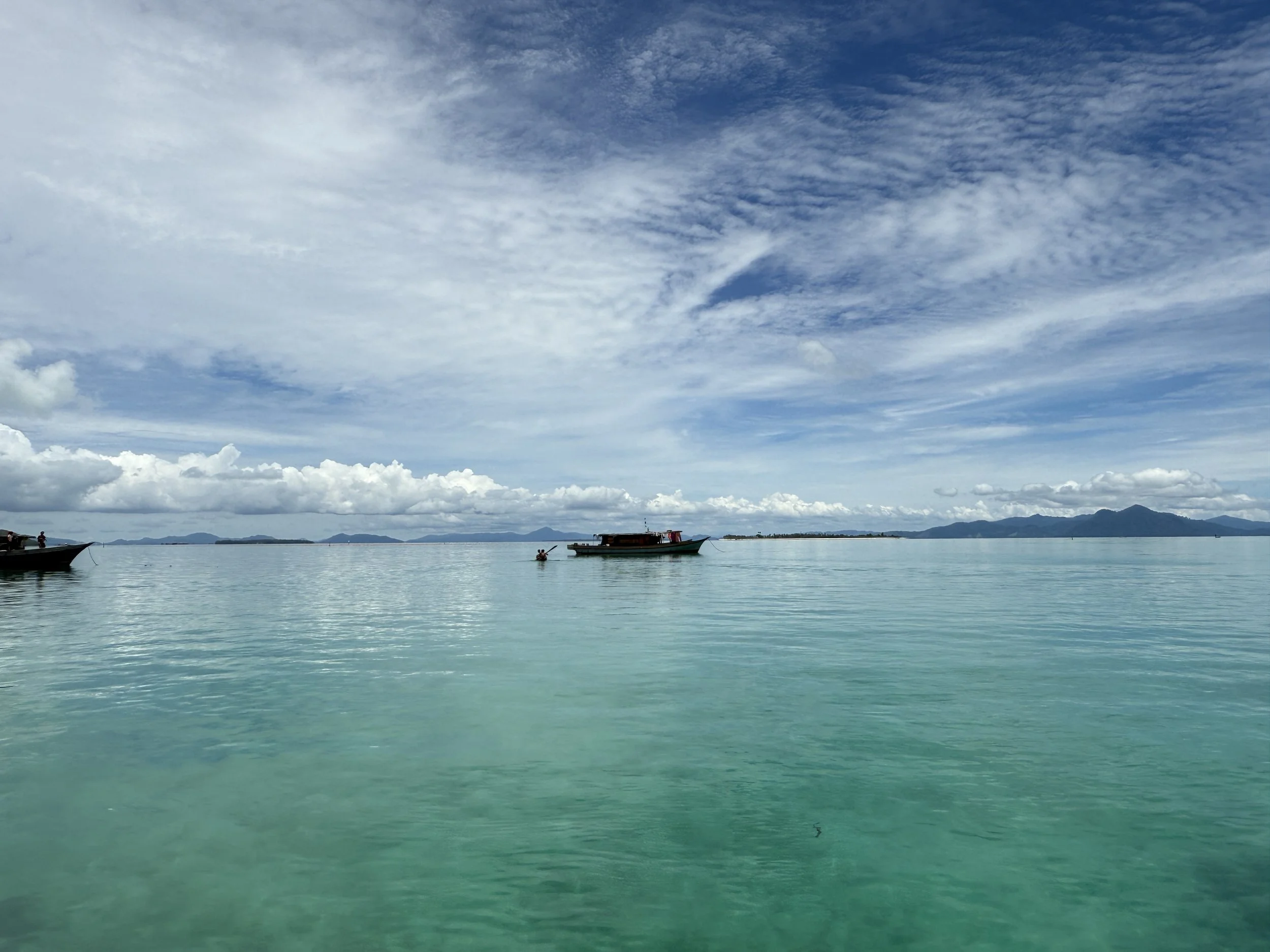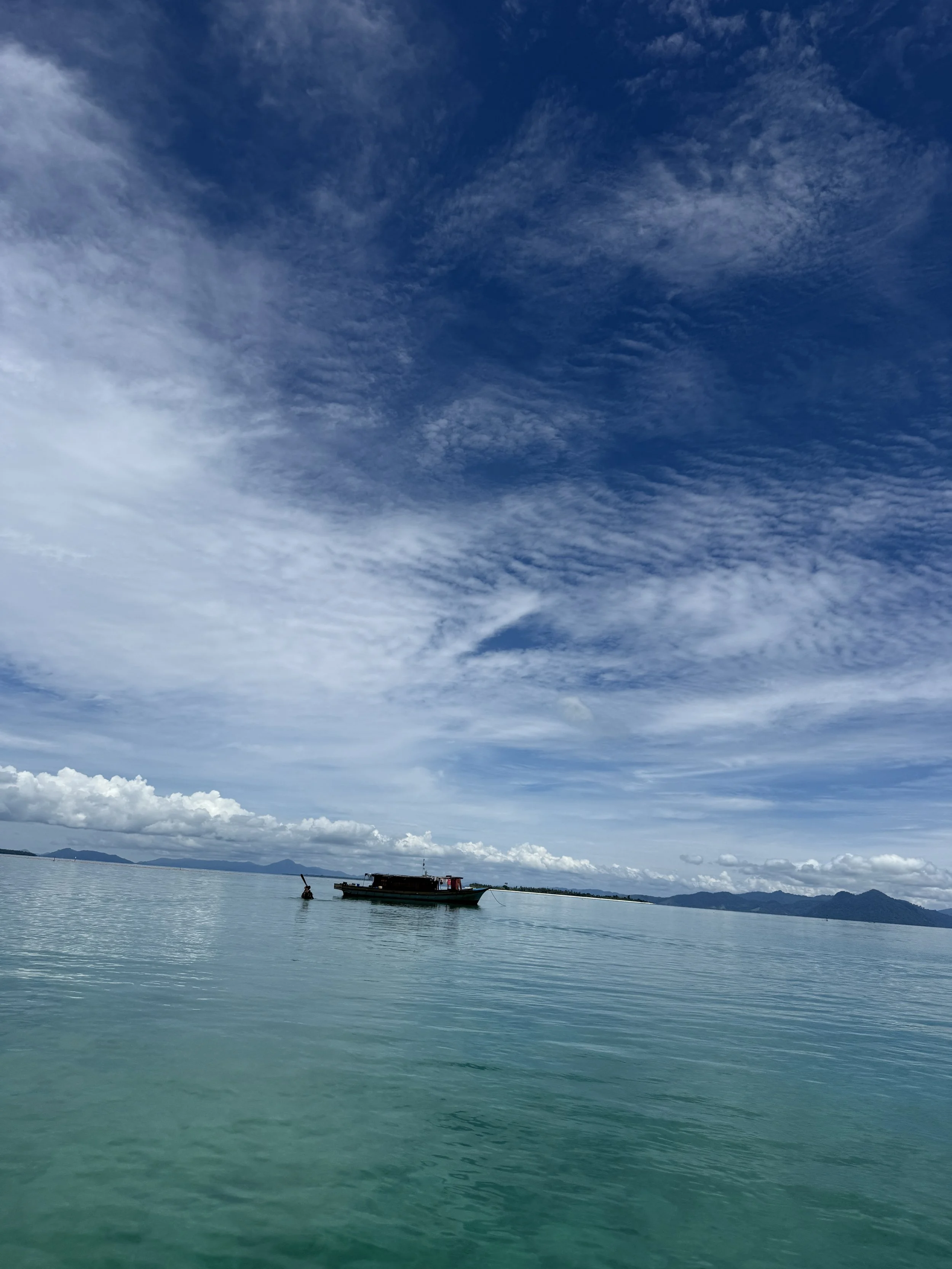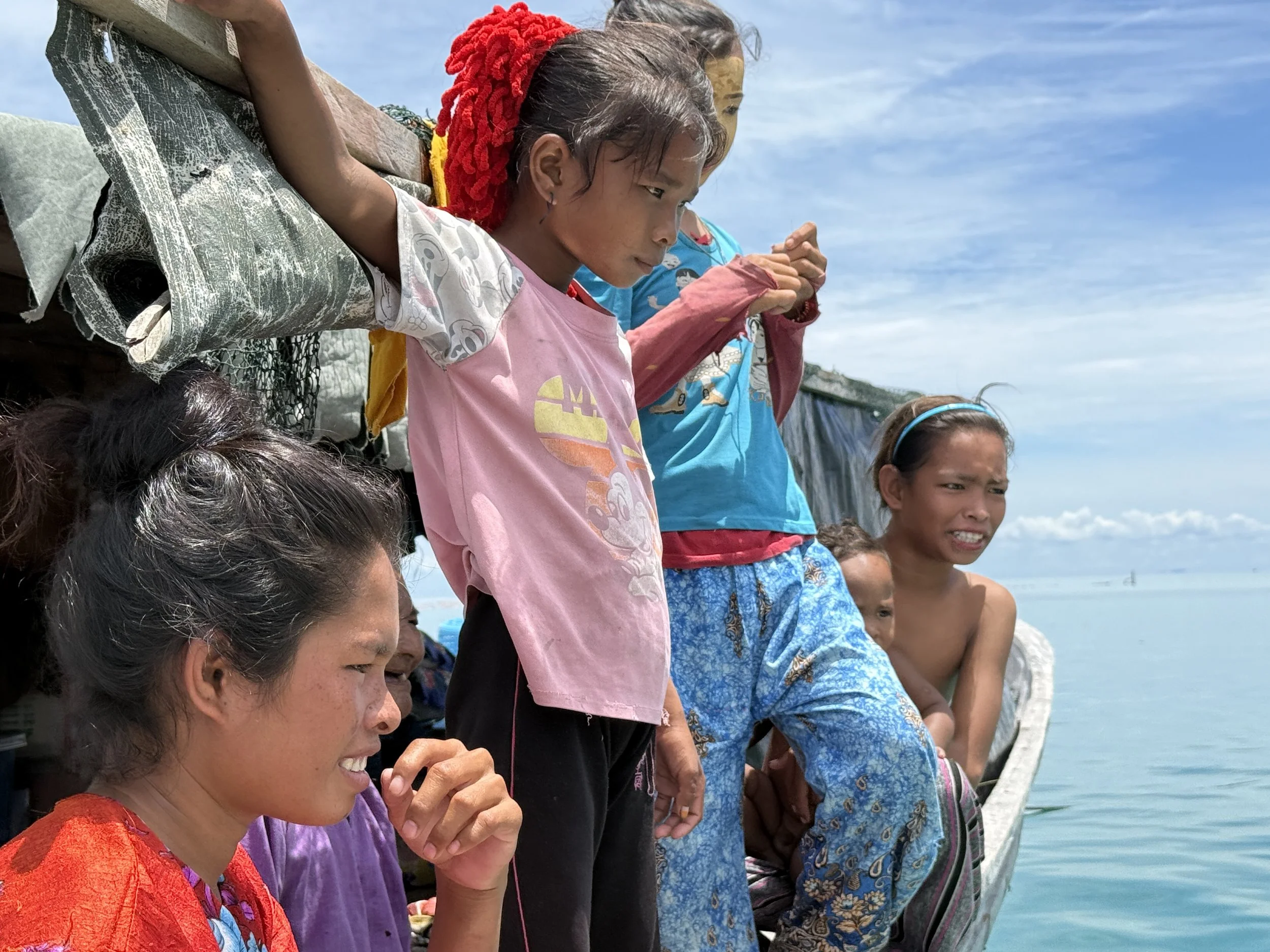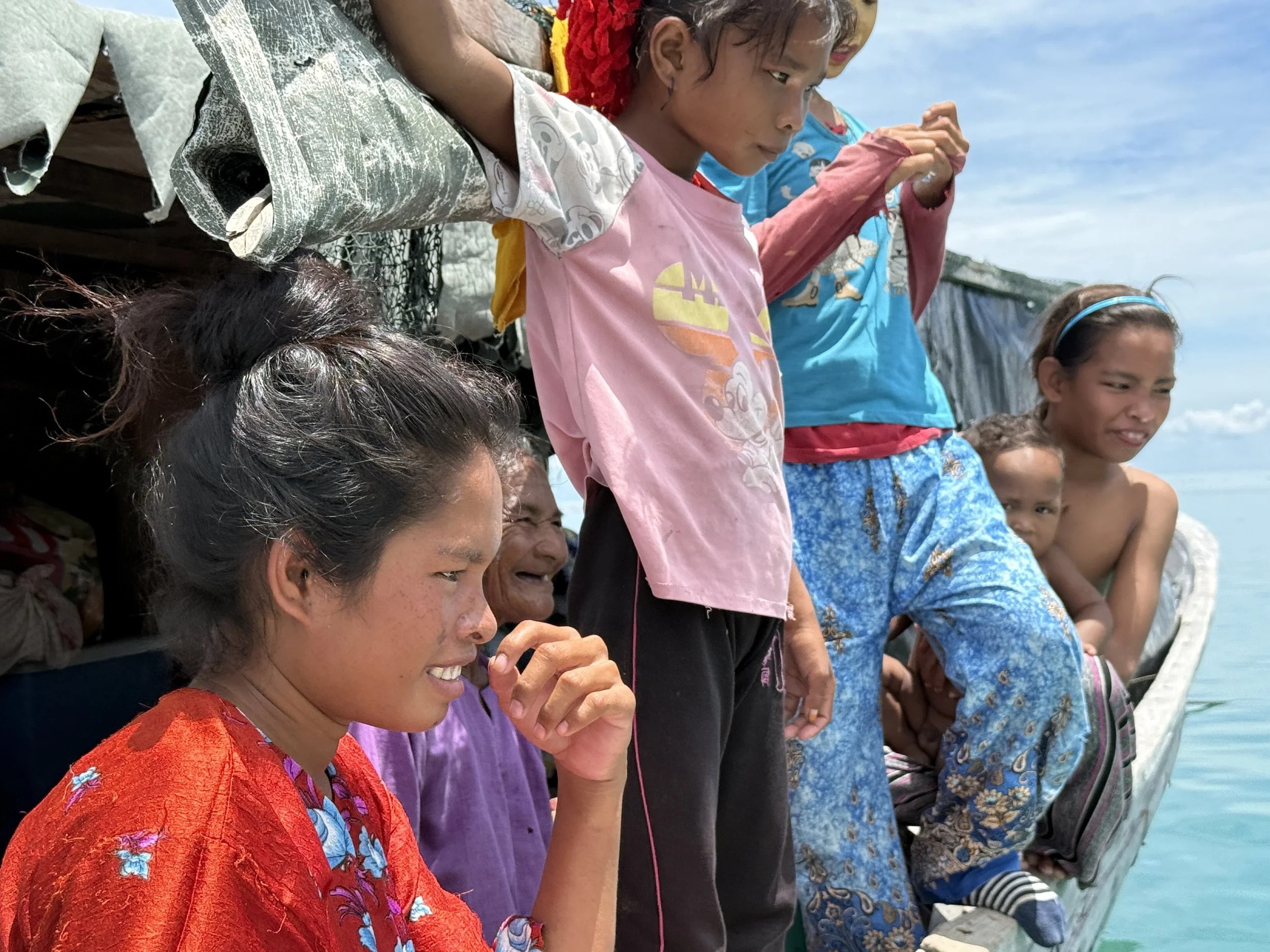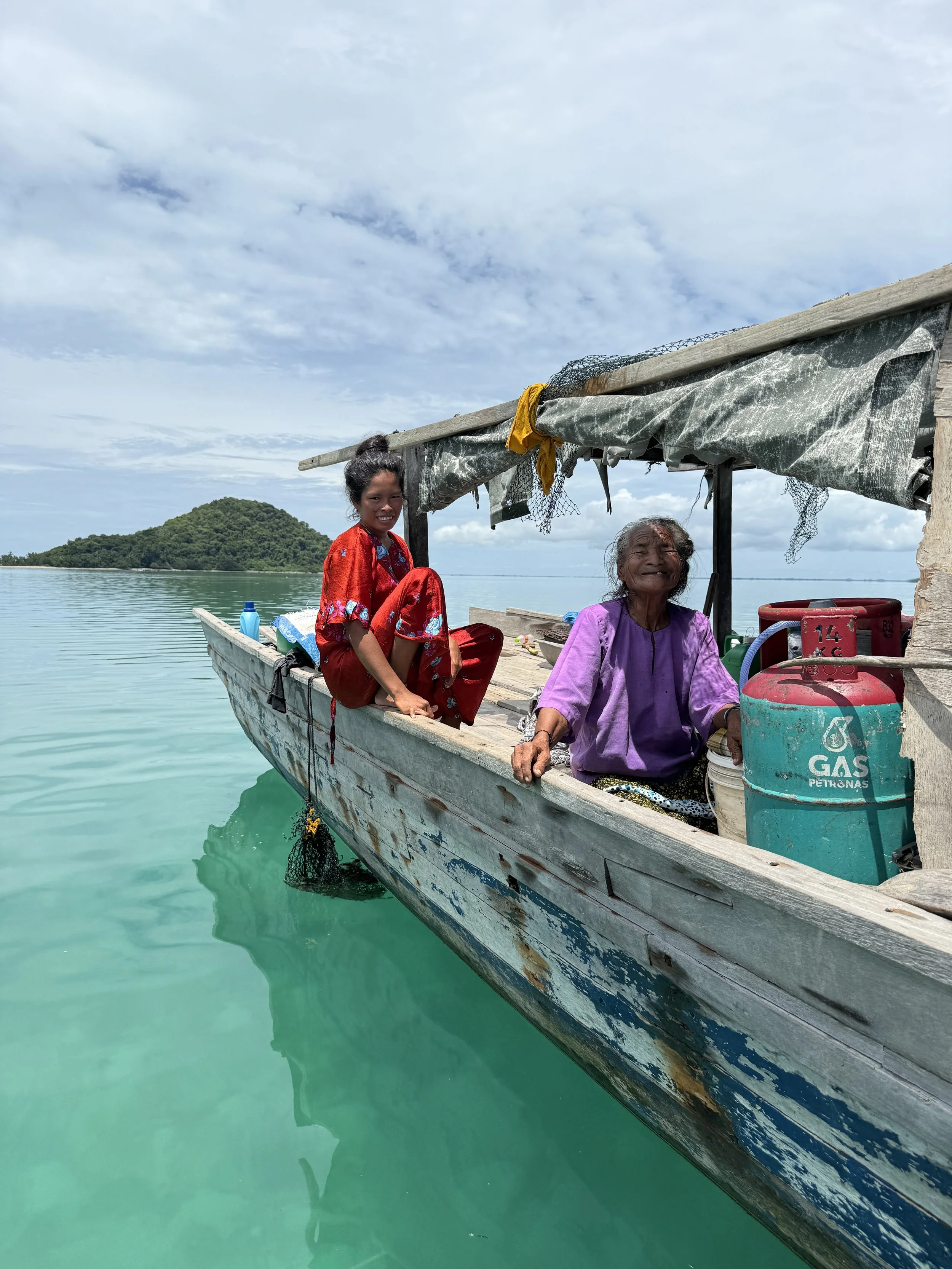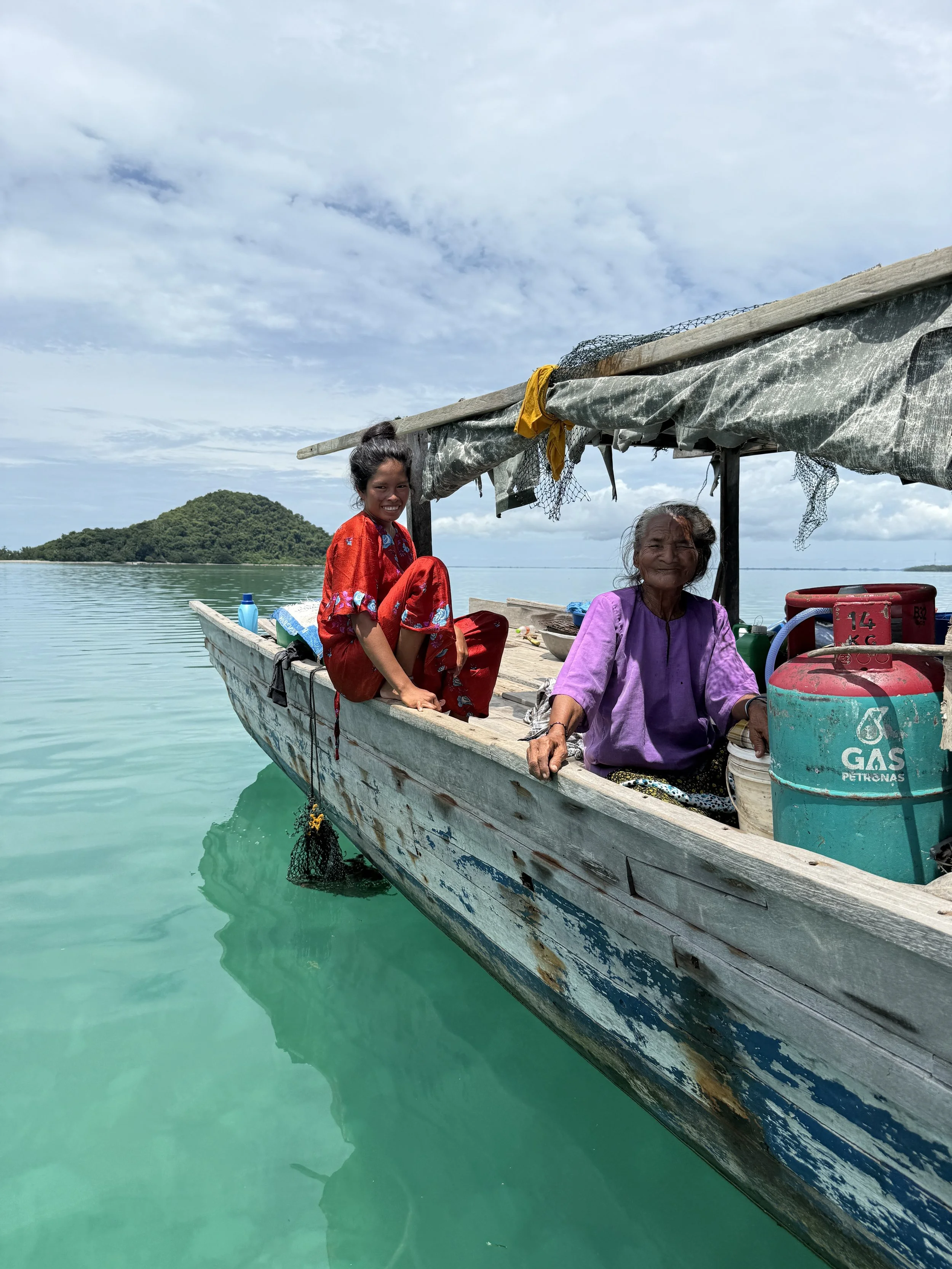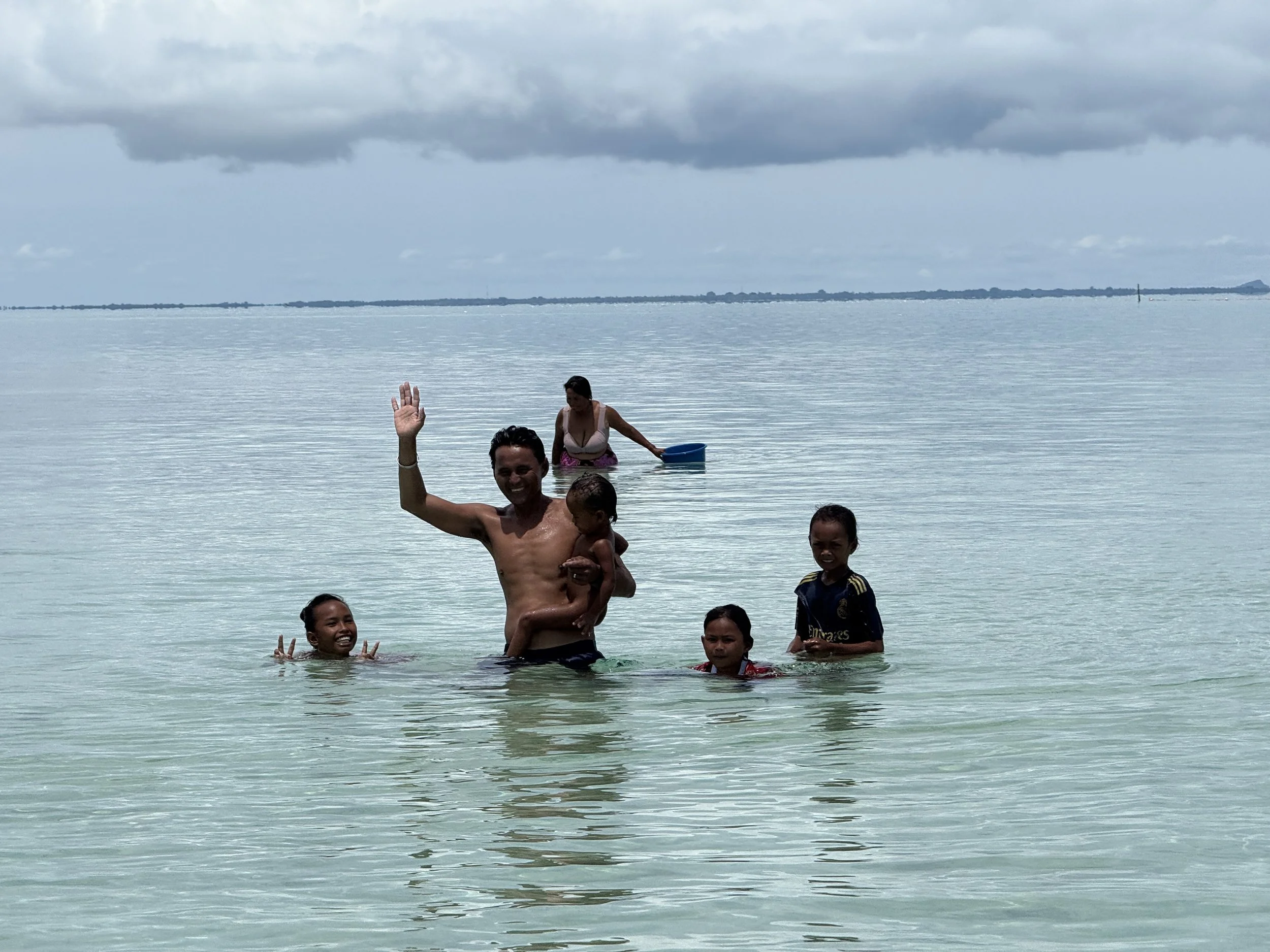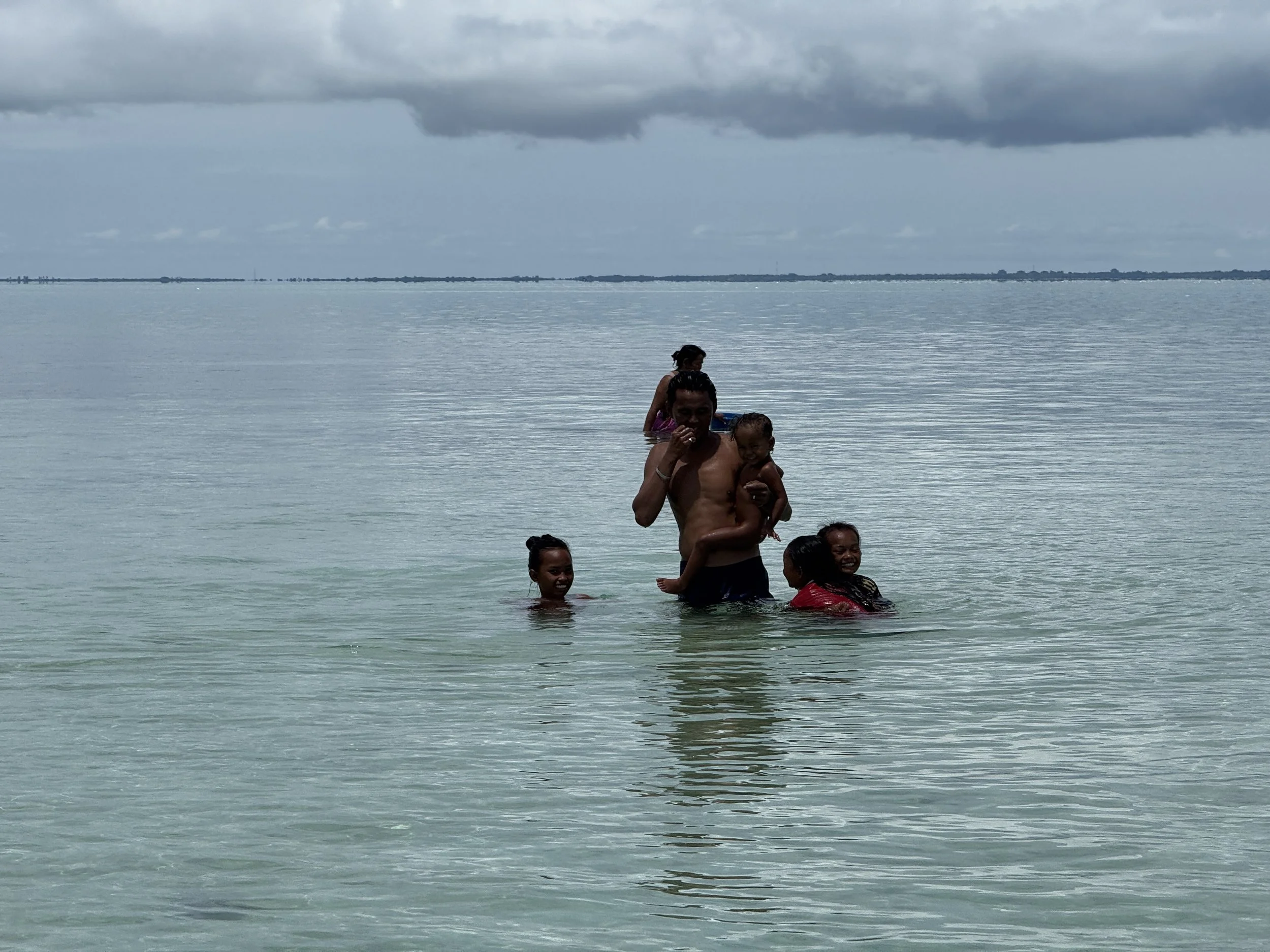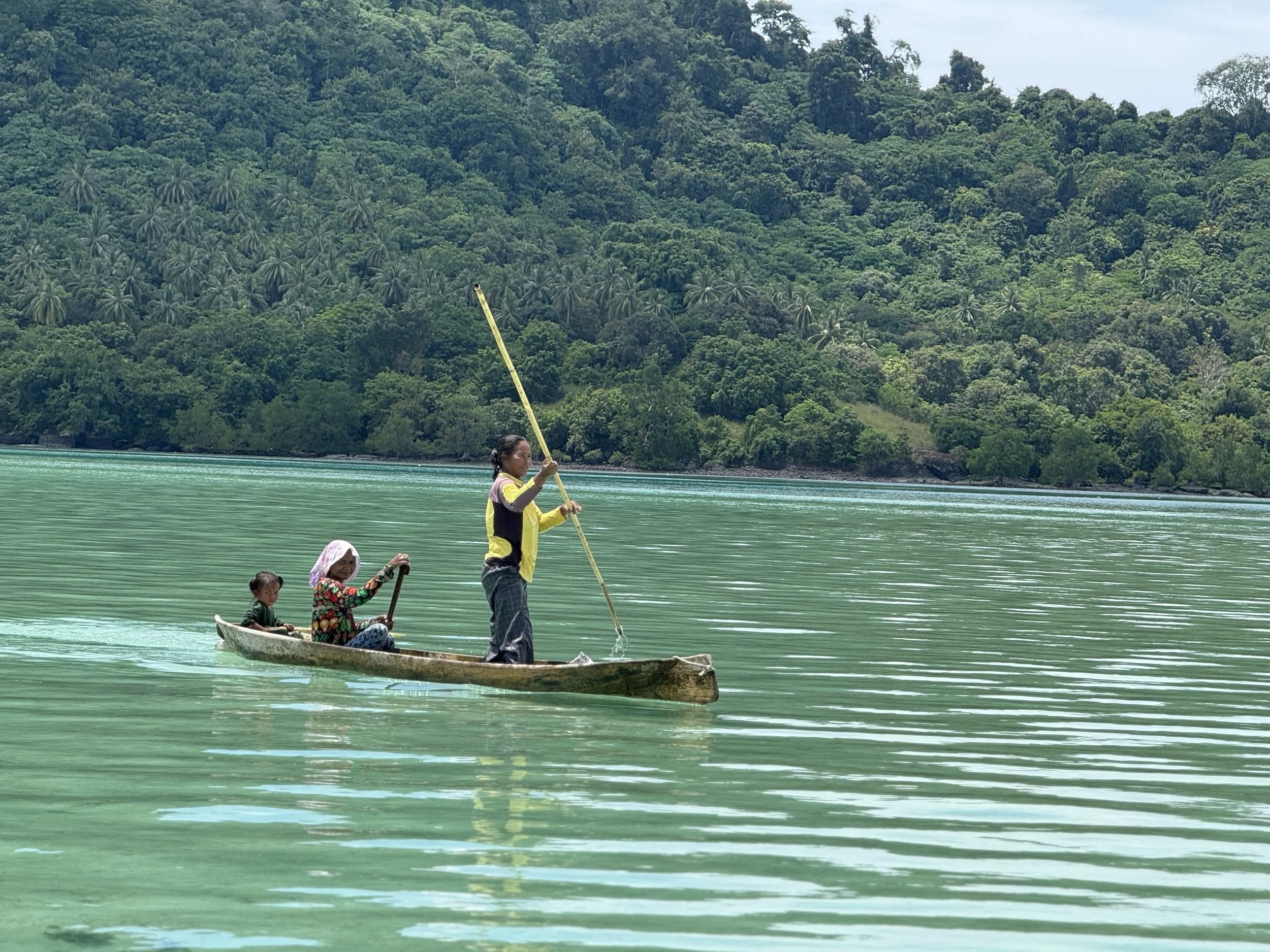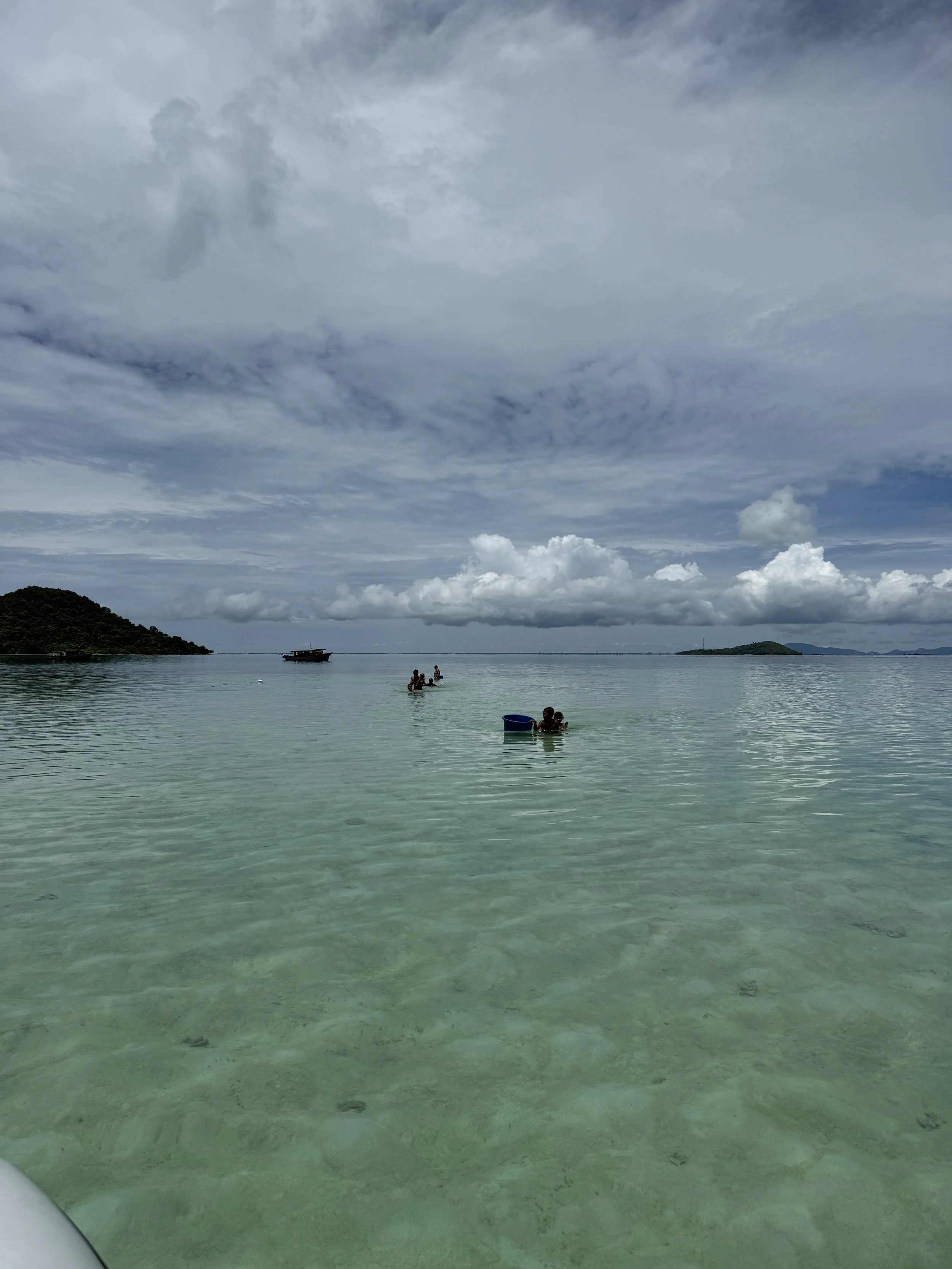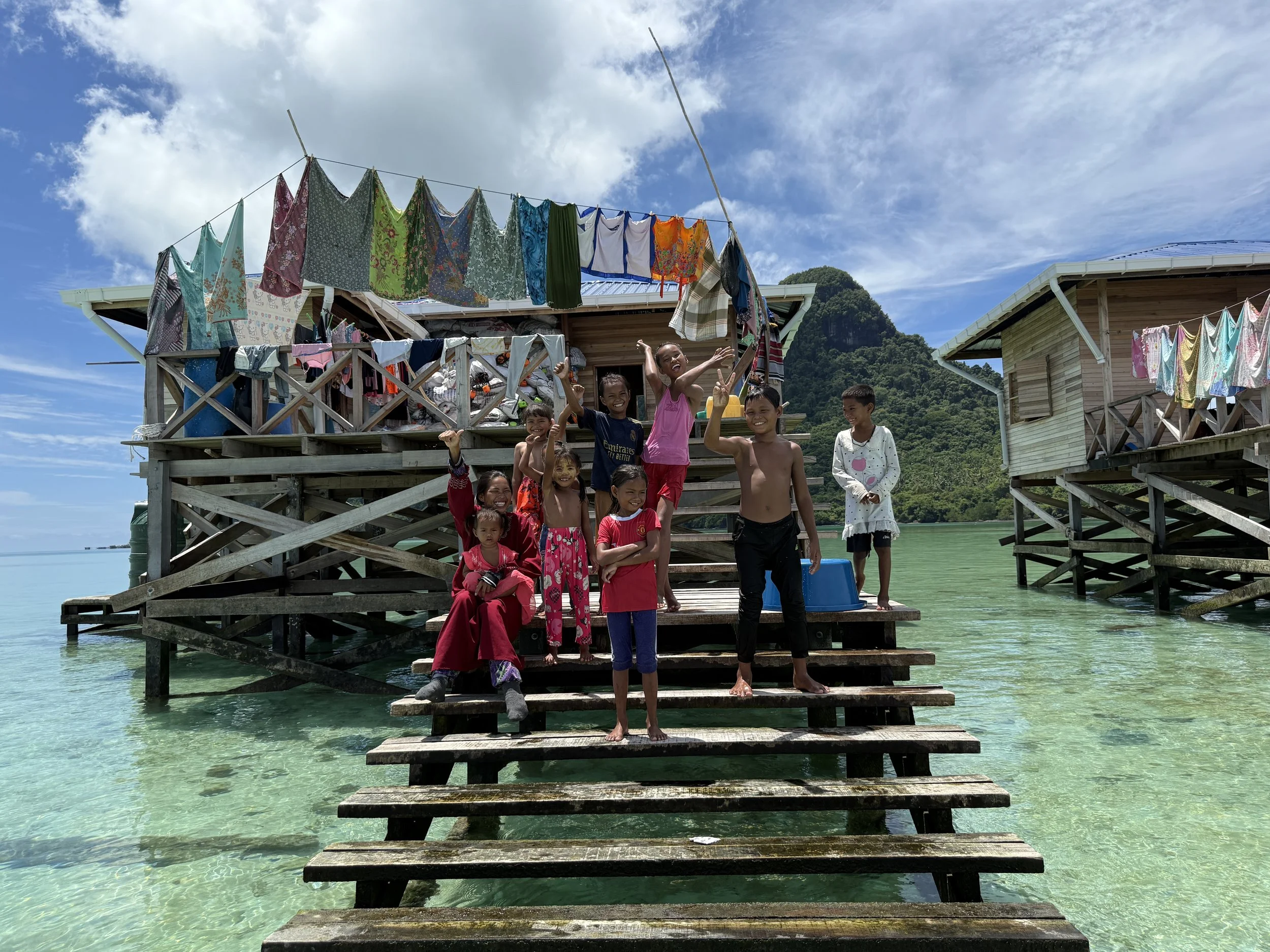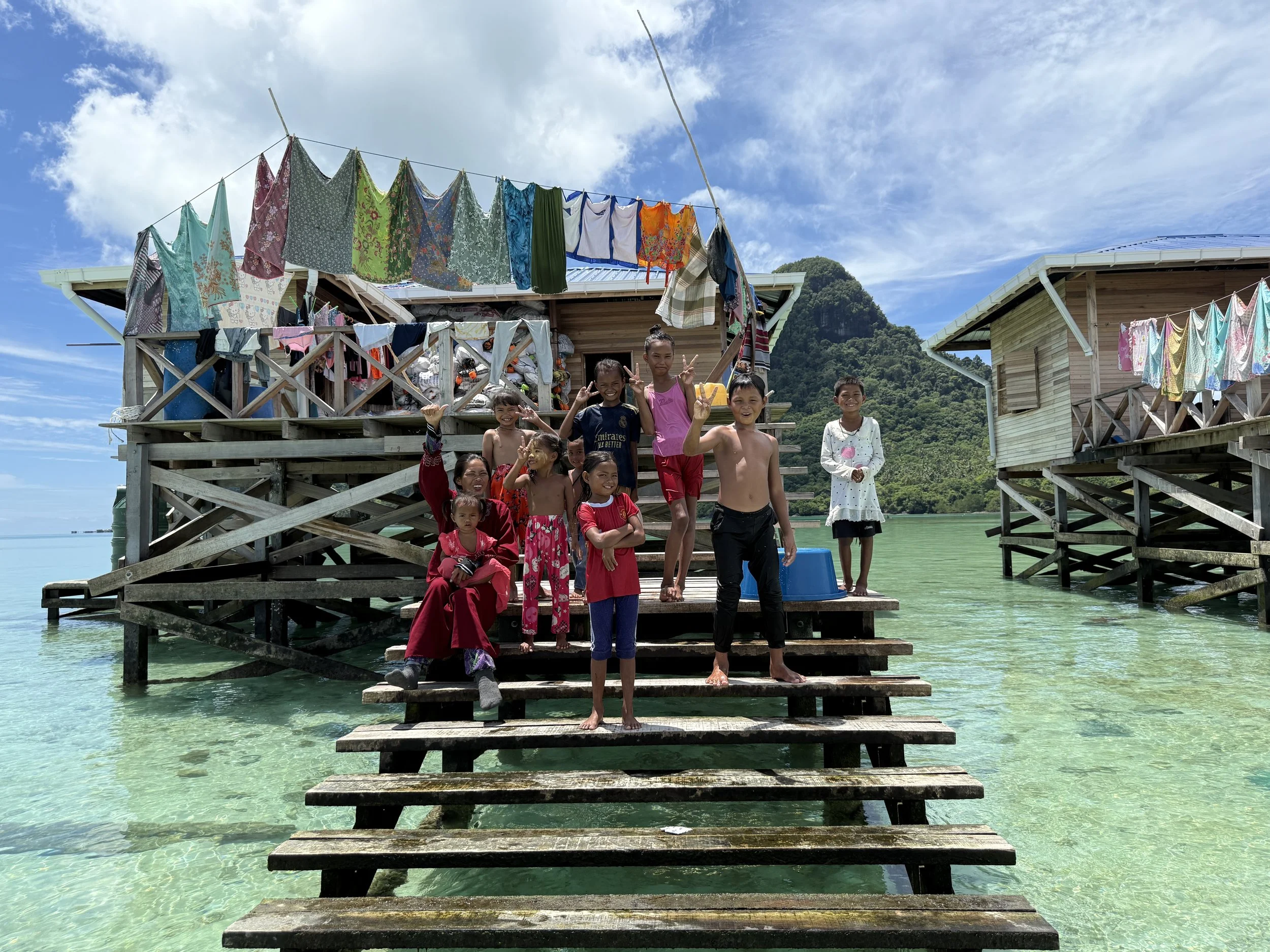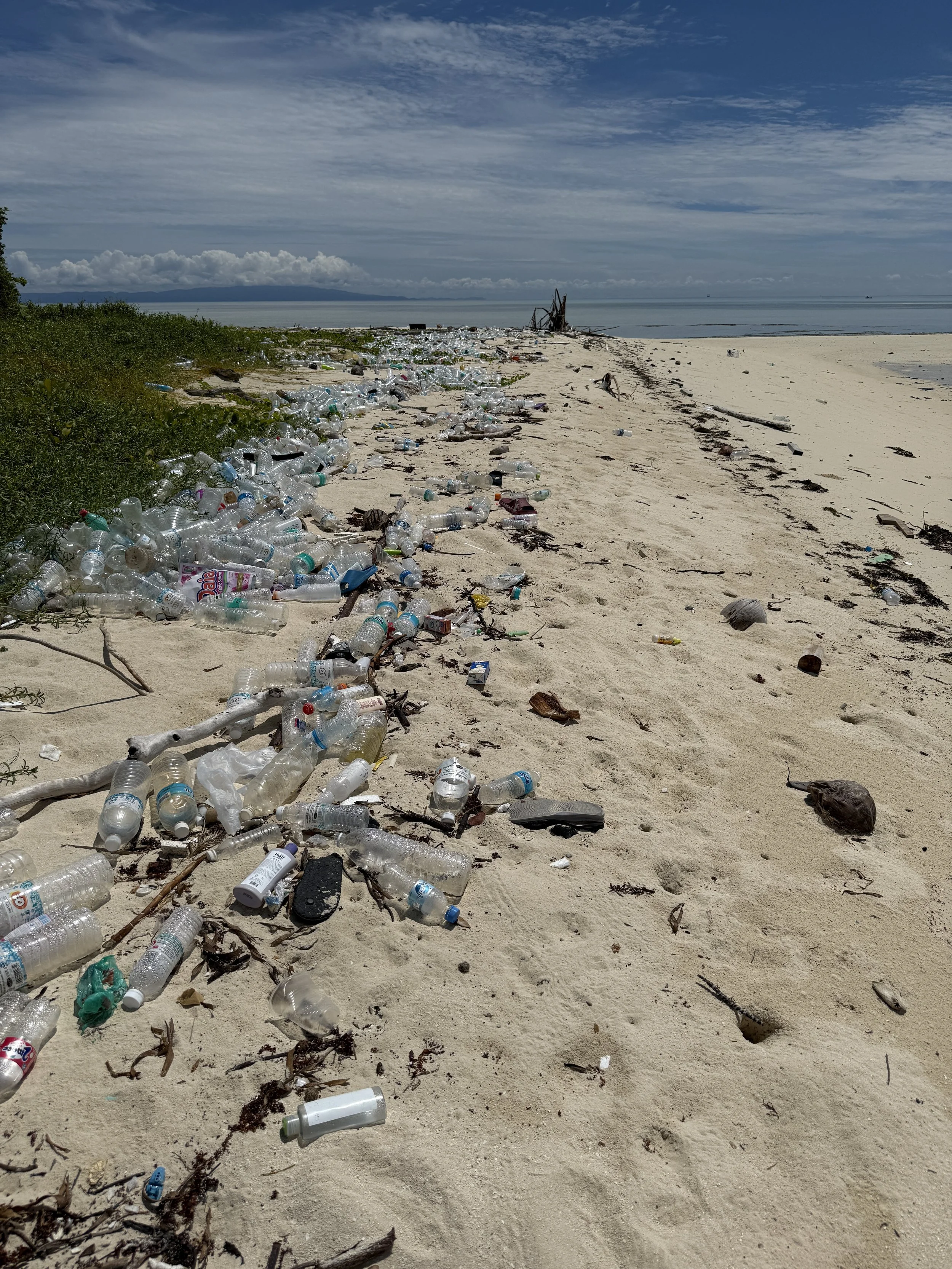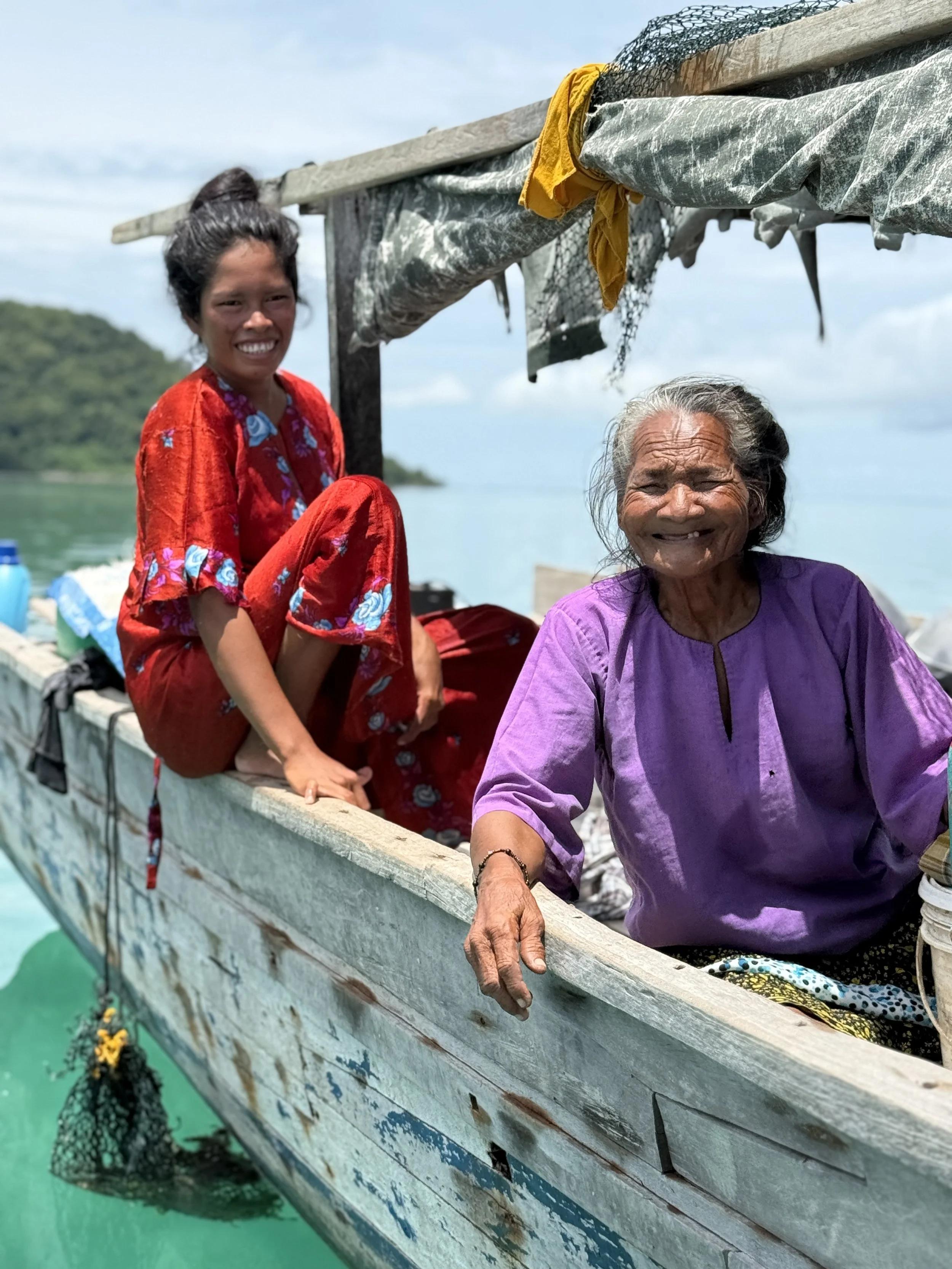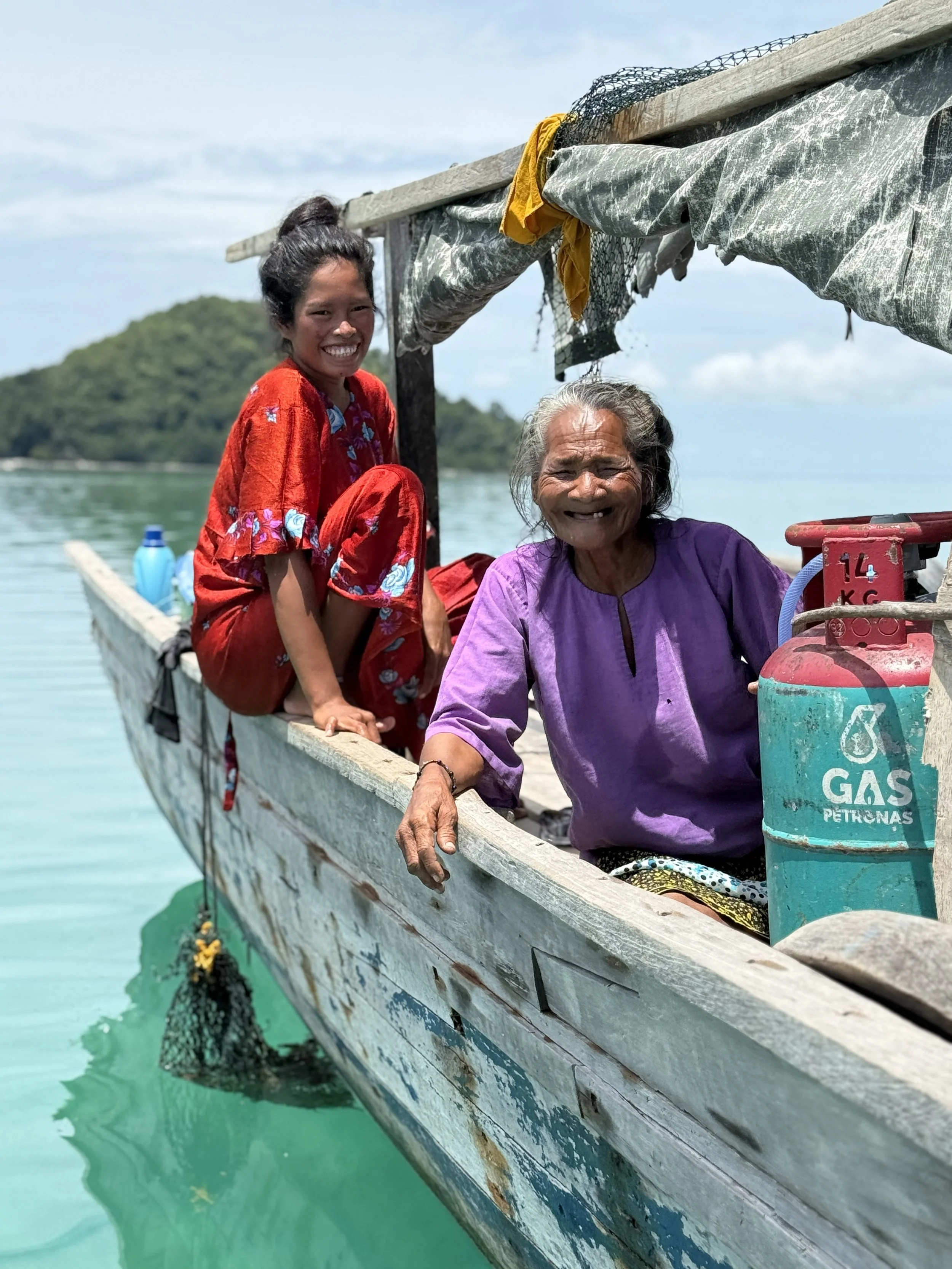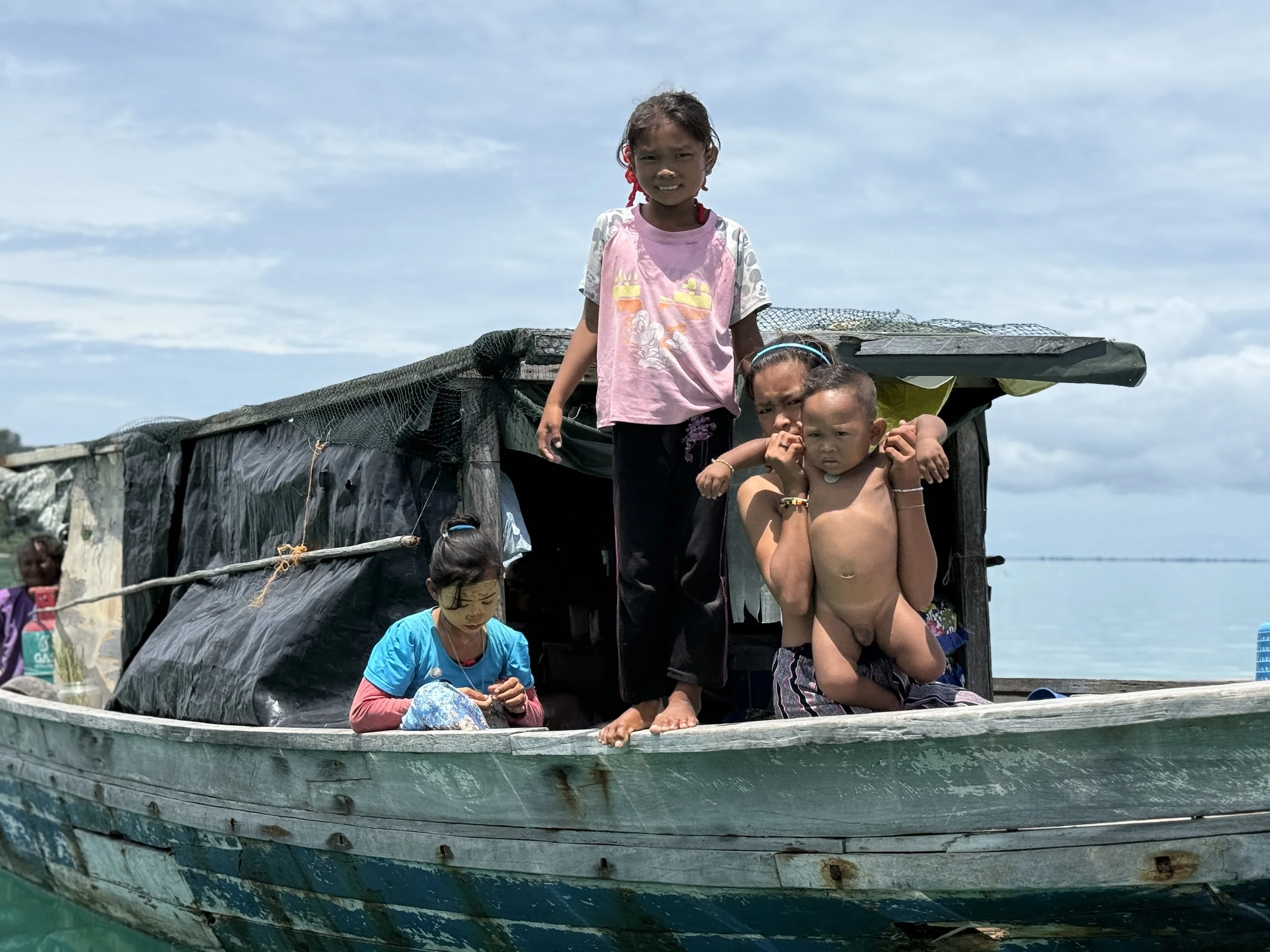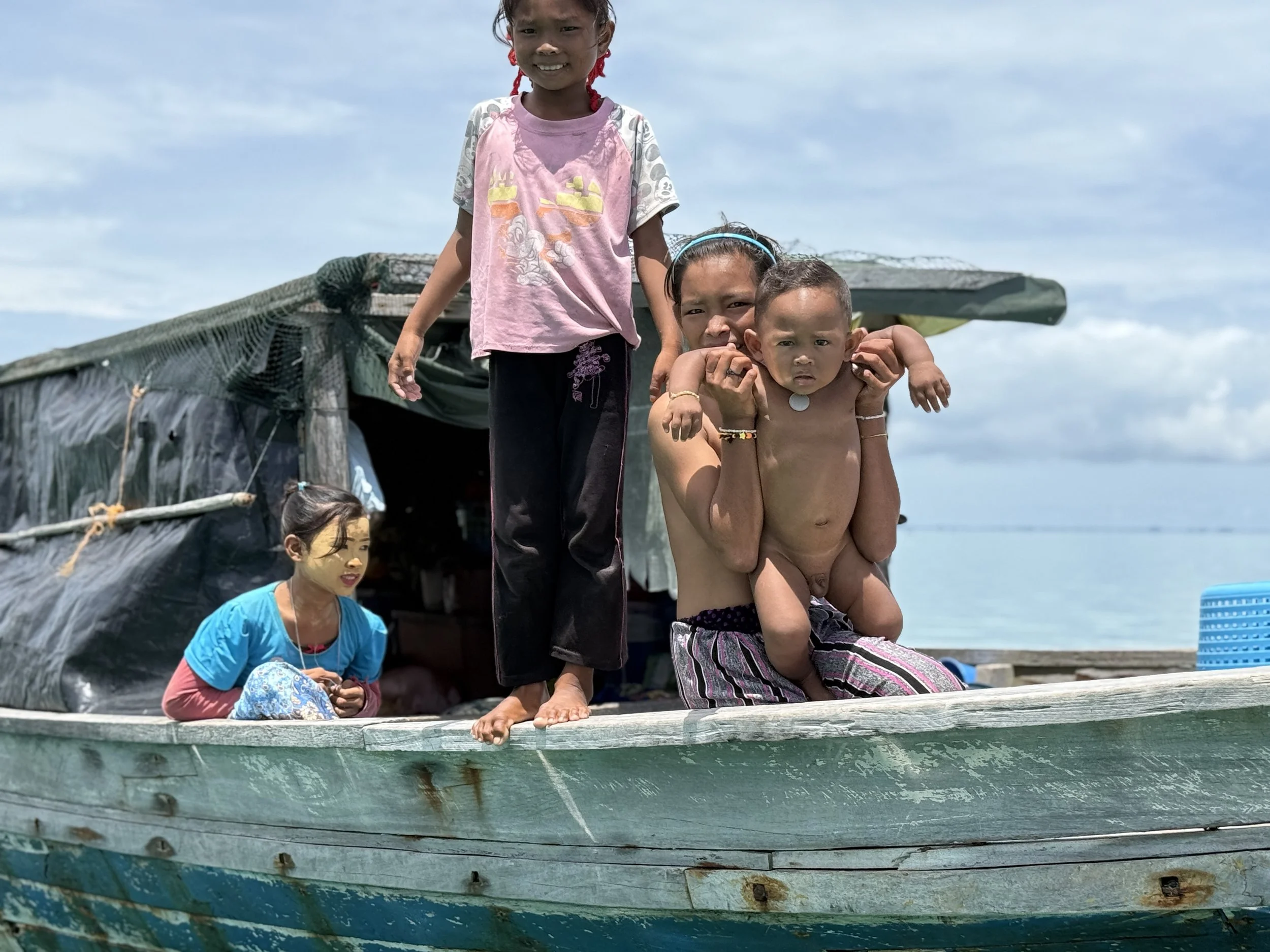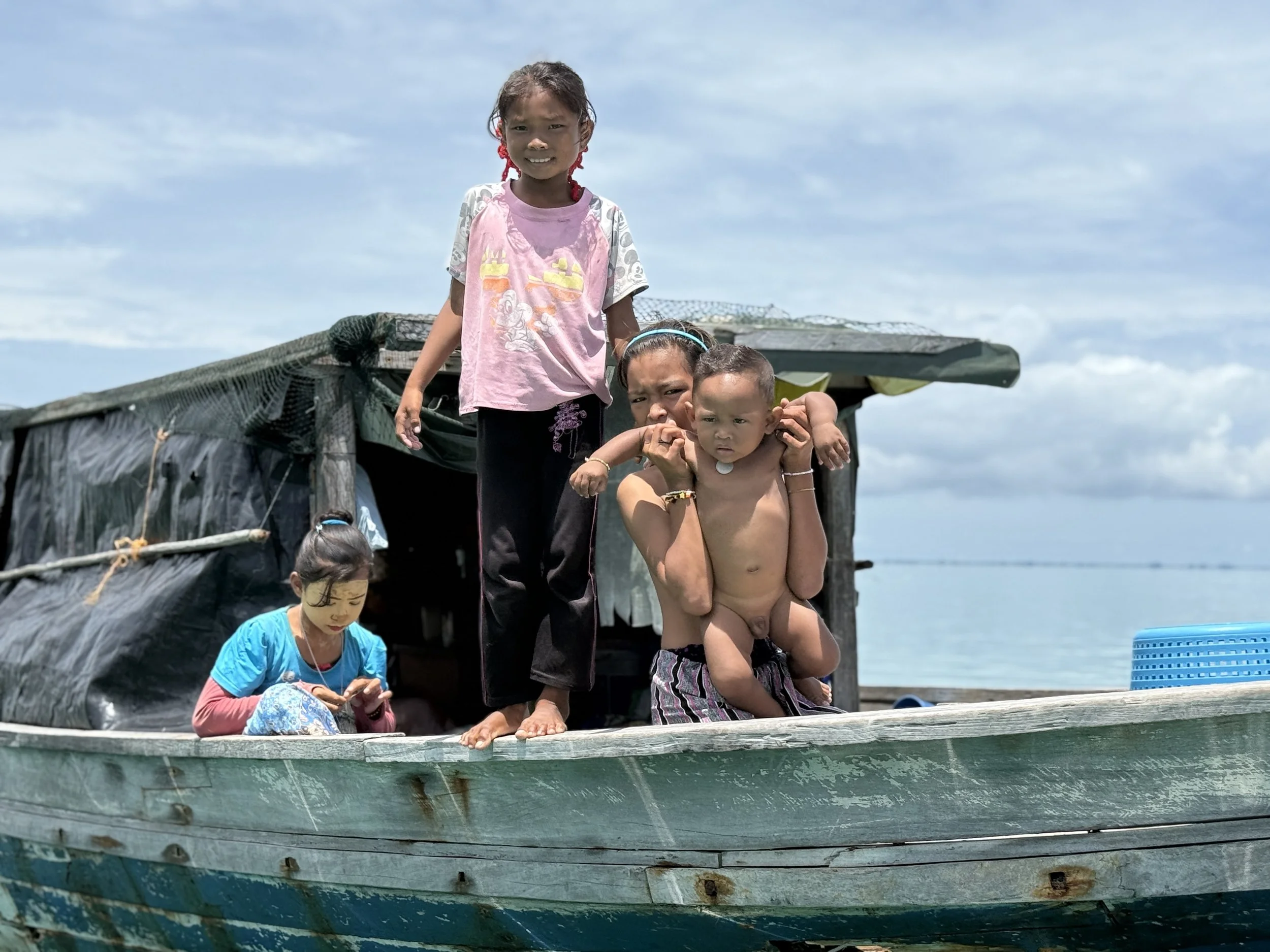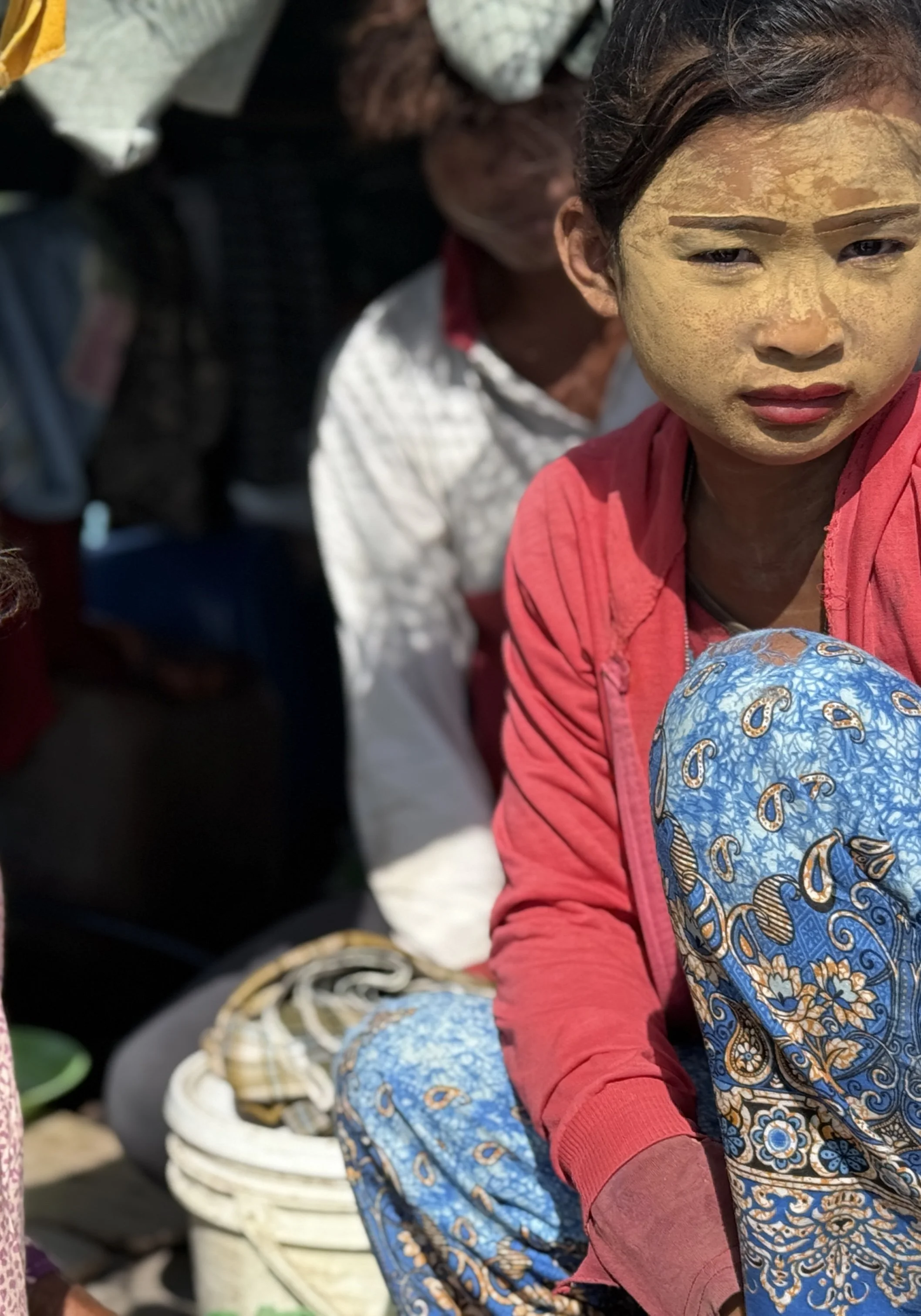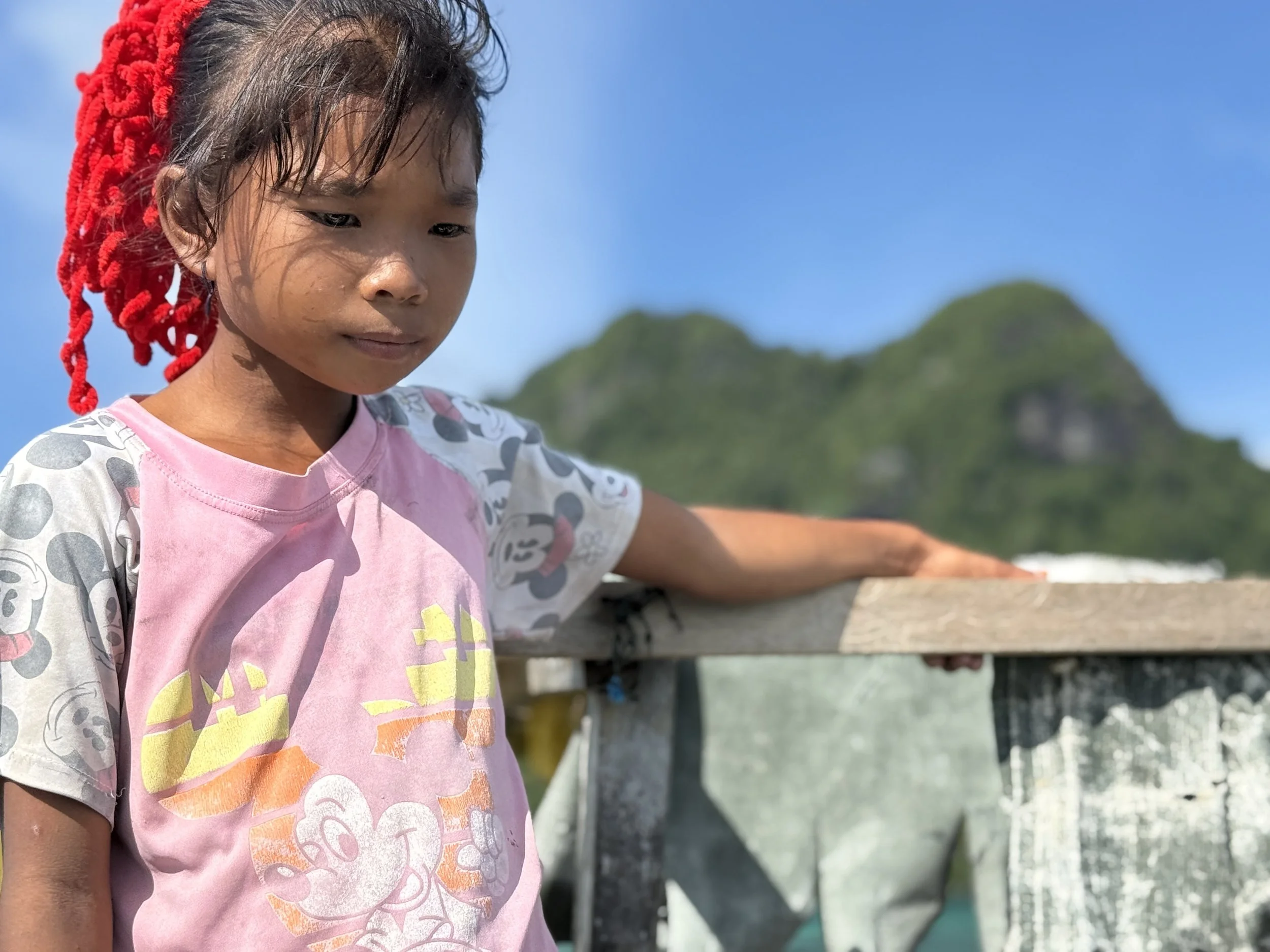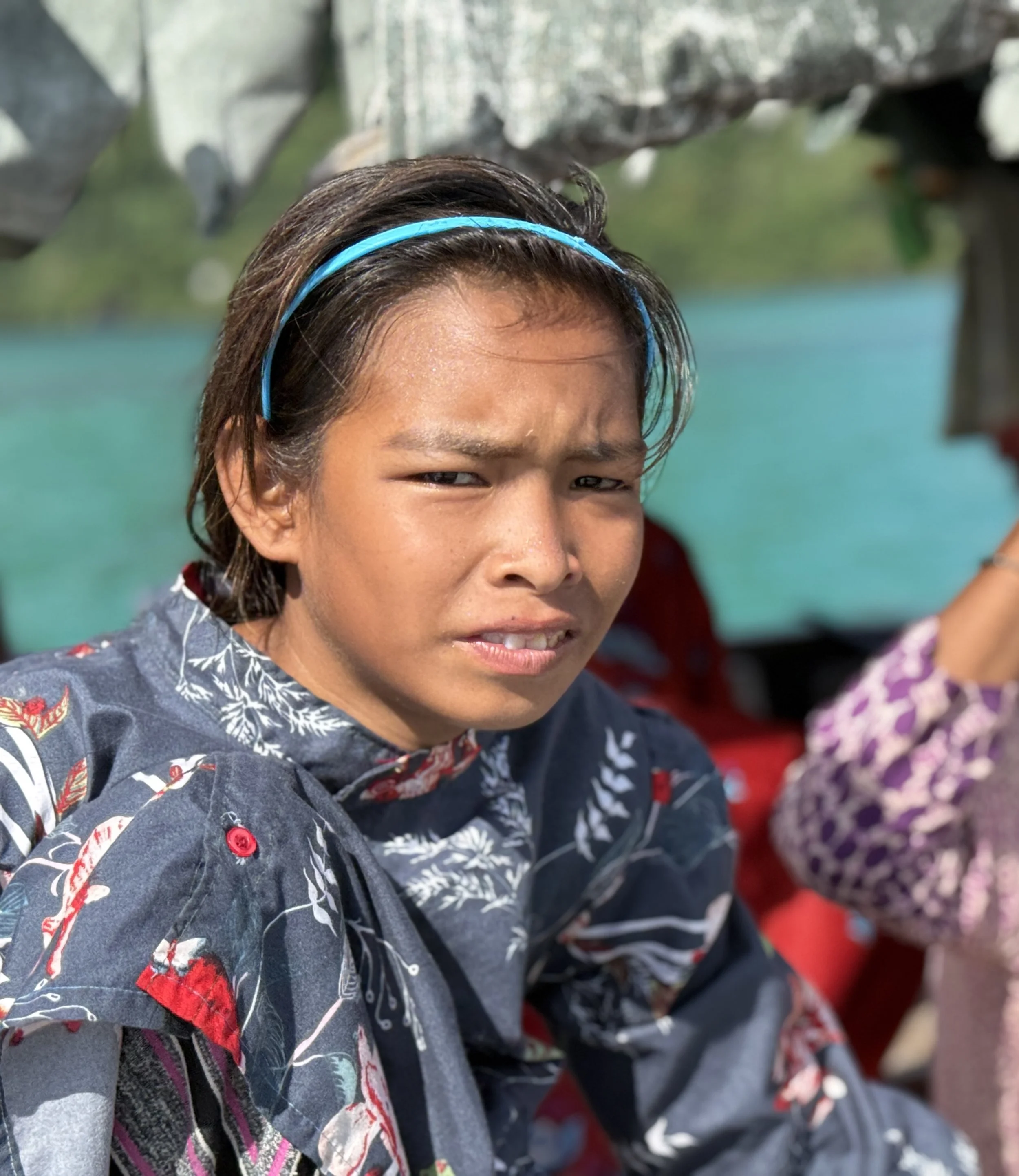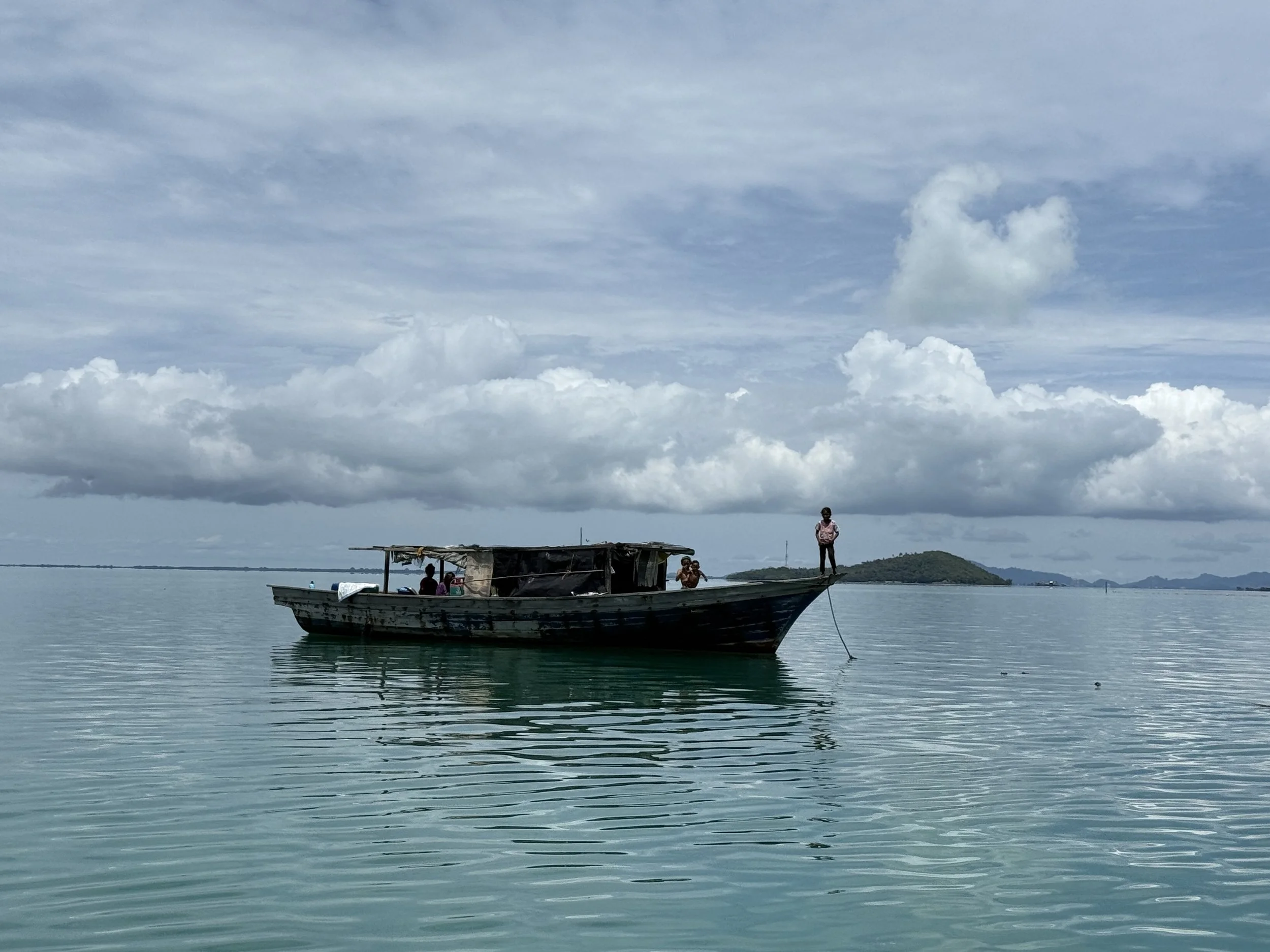PARADOX IN PARADISE
“Hello Mama” I said, holding the older woman’s hand. She gave me a two-tooth grin and mumbled something that seemed happyish. Our presence was breaking the monotony of their long days living on a long boat, or at least this was the story I told myself.
“Oh gosh, you are beautiful,” I said to her daughter in a way I hoped she would understand. I held her gaze and smiled until she turned, swung and slapped one of the young girls hard across the face because of something she had said. The moment stung. I pulled away. The young girl was holding a baby that screamed and squirmed and her face read shock, then shame, then sadness. Unnecessarily, I mumbled, ‘Be nice,’ and we motored away in silence, stunned. The pretty woman smiled at me, but her smile did not reach her eyes.
It took a moment to park my judgement. These people are poor in paradise. They are sea gypsies and their government is trying to eradicate them. They live in poverty. Their colourful laundry dances in the wind, almost majestic. Obviously they have nothing better to do and I wonder aloud where they get their fresh water from.
We motor in and out amongst more old boats and shacks built on stilts that house multiple generations. Taking photos doesn’t seem right but I took them anyway and I feel like an asshole. We visit another family, or groups of multiple families living in a stilt house. I high five small hands that reach out. The boys tell me later the kids were begging and I feel bloody awful.
The incongruity sticks on me for days. Just fifteen nautical miles away are fancy resorts built on stilts too. The scenery here is postcard beautiful, yet pollution, squalor, plastic bottles in the millions are just out of the frame. The irony is absurd; this is a Conservation Park and we were instructed not to bring plastic drinking bottles. ‘Do not litter’ signs are so ubiquitous they just feel like further defacement.
Scores of children on these boats do not go to school. We discuss whether they have books, then catch our own privilege: they can’t read. We live on a boat too, but it has air conditioning and ample food in freezers. A rare superyacht traveller visits us and complains about the culture, the heat, the rubbish, the bureaucracy, then sails away because he has another thing they don’t: choice.
We watch a young mother cut up tropical fish to feed her family, we spy Finding Nemo-type fish piled up, the cartoon kind that tourists travel thousands of miles to see, or people keep in aquariums in offices. The line between engagement and voyeurism feels awfully thin; it is just a whisper, and it is wildly uncomfortable.
We visit Semporna, a squalid, cess-pit of a place. It is a heaving, messy, loud, brutish pile of civilisation. There is a vivid and crude smell. Raw humanity, people existing on top of one another. I give a begging child 2 ringgits change, no high-five this time, but I feel horrid as I quickly eat my fast-melting, soft-serve, ice-cream, as she slowly shifts away.
We buy fragrant mangoes, pineapples, oranges and grapes from a stall staffed by two teenage girls. I say virtuously ‘no plastic’, they chime back ‘no plastic, no plastic’, perhaps mocking me thinking I had mocked them. Fair enough. It is difficult to grasp their pricing and quick addition, likely we paid too much, but I decide being taken advantage of feels mildly satisfying. Good for them.
We hike a hill to get a view of the stunning vastness of the archipelago. It really is beautiful. We meet monkeys we anthropomorphize as having their morning tea. As we motor back to the ship we stop to watch a giant turtle lolling about on the surface with her enormous and elegant home on her back. We have to stop to untangle trash from our propeller, and we dodge trash and wood that washes in and out with the tide.
We prepare to leave, something these people can’t do. The paradox of this paradise is confusing and confronting. The dear children, the corruption and the bloody palm oil plantations. It is colossal. It feels like turtles all the way down.
